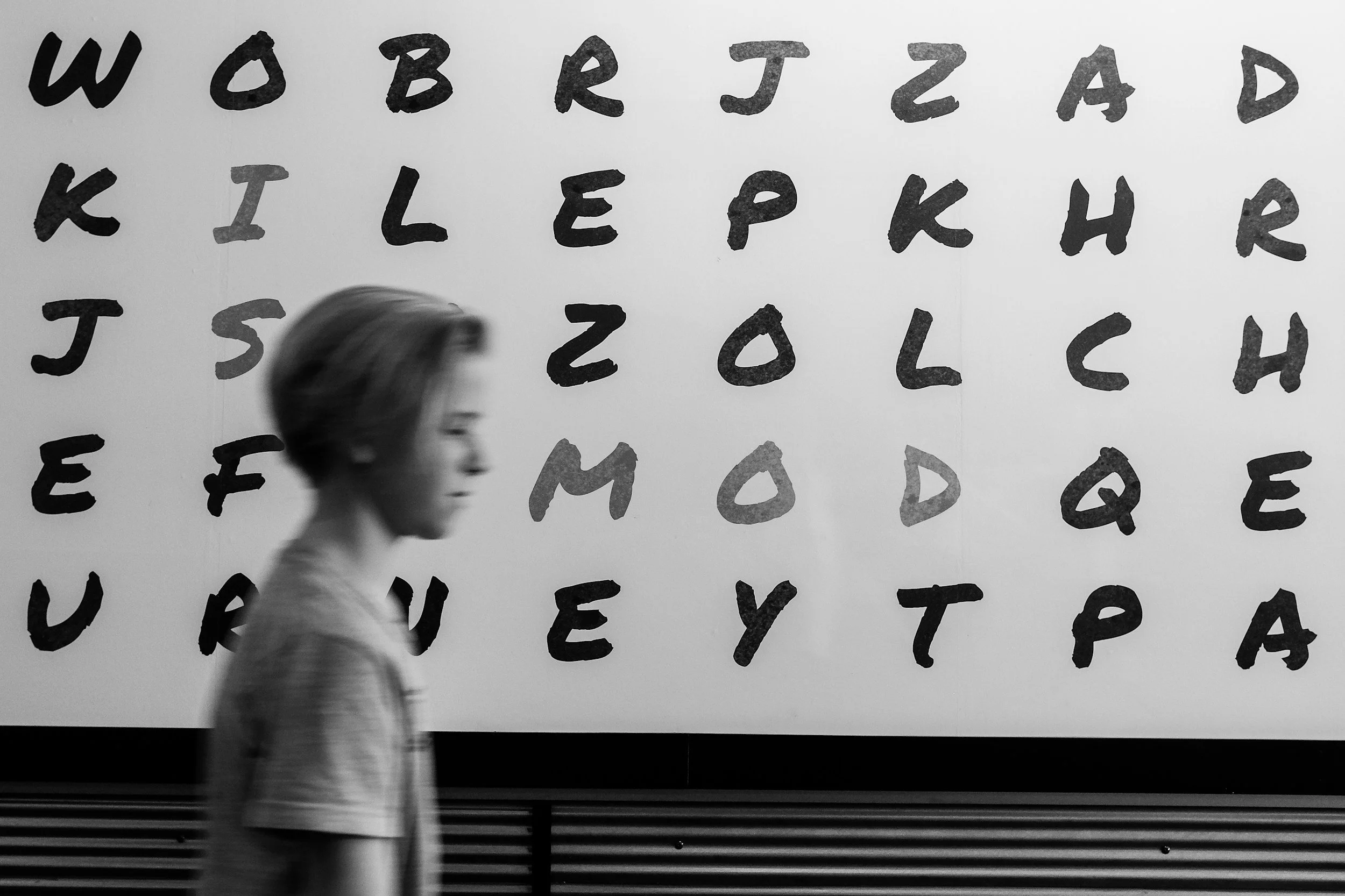
Dyslexia Testing
Slow reader? Poor speller? Begin understanding your learning profile and receive support tailored to your unique needs.
Understanding Dyslexia Testing
Dyslexia testing involves a comprehensive evaluation of reading, writing, and language processing skills to identify difficulties with decoding, spelling, comprehension, and fluency. Key areas assessed include:
Phonological awareness (understanding sounds in words)
Reading decoding and fluency
Spelling and writing skills
Working memory and processing speed
Executive functioning (organization, attention, and planning skills)
Dyslexia testing helps clarify how individuals learn, read, and process written information. At PBA Psychology, testing is often conducted as part of comprehensive psychoeducational assessments, ensuring that all aspects of academic performance and learning challenges are addressed.
Emotional and Life Impacts of Undiagnosed Dyslexia
When dyslexia is unrecognized, it can affect multiple areas of life:
Self-esteem and confidence: Repeated difficulties with reading or writing can lead to feelings of inadequacy
Academic or career challenges: Learning difficulties may limit school performance or workplace efficiency
Anxiety and stress: Persistent struggles can create frustration and avoidance behaviors
Social challenges: Children may feel embarrassed in class, and adults may experience shame or stress in professional settings
Testing helps individuals understand their challenges and leverage their strengths while addressing weaknesses, improving overall well-being.
Why Get Dyslexia Testing?
Children, teens, and adults may experience difficulties with reading, writing, or spelling that impact their academic, professional, or personal life. Common challenges include:
Slow or inaccurate reading
Difficulty spelling or writing clearly
Avoiding reading tasks due to frustration
Trouble understanding or remembering what is read
Struggling to keep up academically or professionally
Dyslexia testing provides clarity and validation, distinguishing dyslexia from other learning difficulties, ADHD, or processing challenges, and guiding strategies for success.
A Real-Life Example: Child
‘Liam’ , age 10, struggled to read fluently and often avoided reading tasks at school. Despite intelligence and curiosity, he became frustrated and anxious when asked to read aloud. Through dyslexia testing, Liam received a clear diagnosis and a tailored reading plan. His teachers implemented strategies like multi-sensory learning, structured phonics instruction, and extra time on assignments. With support, Liam’s confidence grew, and he began to enjoy reading for the first time.
A Real-Life Example: Adult
‘Karen’, a 32-year-old professional, had always struggled with spelling, reading quickly, and writing reports. She assumed these difficulties were personal shortcomings, affecting her work performance and confidence. After dyslexia testing, Karen learned she had high-functioning dyslexia. The evaluation highlighted her strengths in problem-solving and creative thinking while identifying her challenges. With strategies like text-to-speech tools, proofreading supports, and organizational techniques, Karen improved her work efficiency and self-confidence.
What Dyslexia Testing Can Reveal
Dyslexia testing provides:
A clear diagnosis (or ruling out dyslexia if it is not present)
Insight into cognitive and academic strengths and weaknesses
Recommendations for school accommodations (IEPs, 504 Plans, structured reading supports)
Guidance for workplace accommodations (assistive technology, time management tools, proofreading support)
Tailored interventions and learning strategies for reading, writing, and comprehension
Dyslexia Testing: Psychoeducational vs. Neuropsychological Contexts
Dyslexia testing can be included within:
Psychoeducational Testing: Evaluates reading, writing, and academic skills in conjunction with learning profile, attention, and executive functioning. Results inform educational accommodations like IEPs or 504 Plans.
Neuropsychological Testing: Assesses broader cognitive functioning including memory, attention, and processing speed, differentiating dyslexia from other cognitive or neurological factors.
Understanding the full profile allows clinicians to tailor interventions and supports for academic, work, and daily life success.
The Value of Comprehensive Psychological Testing
At PBA Psychology, dyslexia testing is conducted within a comprehensive psychological testing framework to ensure:
Accurate diagnosis and understanding of learning strengths and weaknesses
Practical recommendations for school, work, and home supports
Guidance for therapy, educational interventions, and assistive technology
Taking the Next Step
If reading, writing, or academic challenges are affecting your child or yourself, dyslexia testing can provide clarity, validation, and actionable strategies. At PBA Psychology, our team specializes in thorough, evidence-based dyslexia evaluations for children, teens, and adults.
Let’s Take the Next Step Together
WE CAN HELP.
REACH OUT TODAY.
Phone: 310.271.2275
BEVERLY HILLS LOCATION
9350 Wilshire Blvd, Suite 212
Beverly Hills, CA 90212
DOWNTOWN LA LOCATION
714 W. Olympic Blvd, Suite 926
Los Angeles, CA 90015








